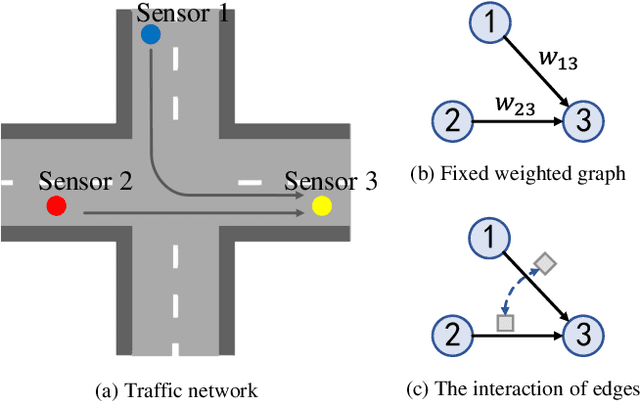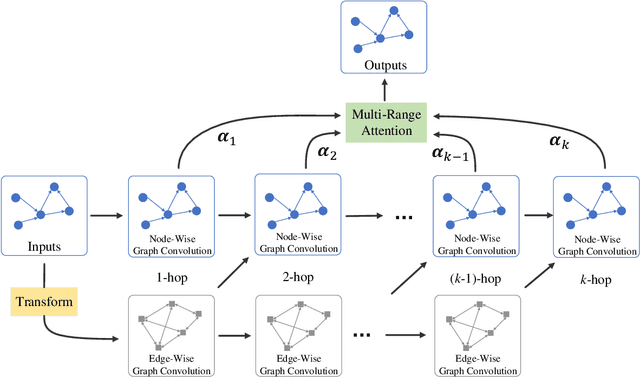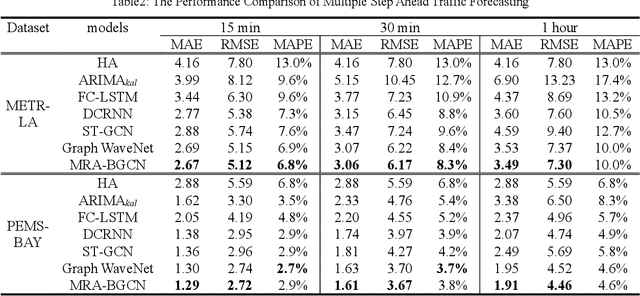Multi-Range Attentive Bicomponent Graph Convolutional Network for Traffic Forecasting
Paper and Code
Nov 27, 2019



Traffic forecasting is of great importance to transportation management and public safety, and very challenging due to the complicated spatial-temporal dependency and essential uncertainty brought about by the road network and traffic conditions. Latest studies mainly focus on modeling the spatial dependency by utilizing graph convolutional networks (GCNs) throughout a fixed weighted graph. However, edges, i.e., the correlations between pair-wise nodes, are much more complicated and interact with each other. In this paper, we propose the Multi-Range Attentive Bicomponent GCN (MRA-BGCN), a novel deep learning model for traffic forecasting. We first build the node-wise graph according to the road network distance and the edge-wise graph according to various edge interaction patterns. Then, we implement the interactions of both nodes and edges using bicomponent graph convolution. The multi-range attention mechanism is introduced to aggregate information in different neighborhood ranges and automatically learn the importance of different ranges. Extensive experiments on two real-world road network traffic datasets, METR-LA and PEMS-BAY, show that our MRA-BGCN achieves the state-of-the-art results.
 Add to Chrome
Add to Chrome Add to Firefox
Add to Firefox Add to Edge
Add to Edge